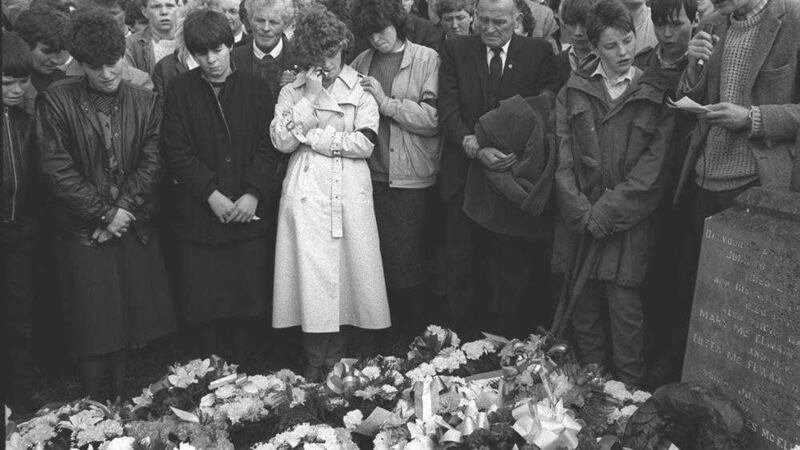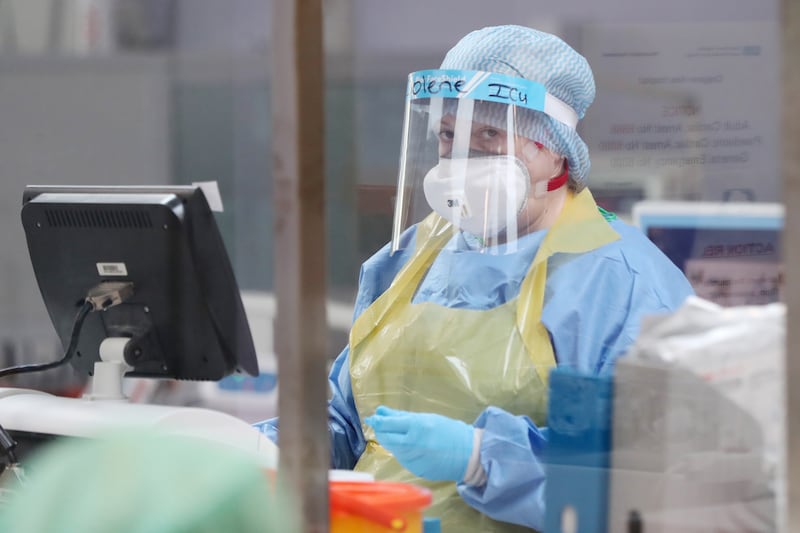MARTIN McGuinness has said politicians must provide positive leadership to address the legacy of the Troubles and to build reconciliation.
The deputy first minister was responding to Arlene Foster's remarks about the difficulties she had in dealing with him because of his graveside oration at the funeral of the man who the DUP leader believes tried to kill her father.
Ms Foster believes Seamus McElwaine, an IRA man shot dead by the SAS in 1986, attempted to kill her father seven years earlier.
The DUP leader, who was aged eight at the time of the gun attack, said information provided to her family by police pointed directly to McElwaine's involvement in the 1979 shooting of her father, John Kelly, a full-time RUC officer and part-time farmer.
The first minister's father survived the murder attempt, sustaining a superficial head wound.
Seamus McElwaine was later shot dead by the SAS while he and an IRA accomplice were preparing to ambush an army patrol near Roslea, Co Fermanagh.
At McElwaine's funeral two days later, Sinn Féin's Martin McGuinness described the dead man as a "highly intelligent volunteer".
He said the young IRA man was a "freedom fighter murdered by a British terrorist" and a "saint" when compared to Margaret Thatcher and Ronald Reagan.
Speaking on the BBC's Spotlight programme, Ms Foster said the experience made dealing with her Stormont counterpart difficult.
"It is quite difficult. If you talk to Martin McGuinness now, he will say that unionists aren't the enemy, the enemy is poverty, the enemy is unemployment," she said.
"And that's fine, but it doesn't take away from the fact that he thought it appropriate to speak at Seamus McElwaine's funeral – a man who had been responsible for murdering many people in County Fermanagh."
But despite her personal difficulties, Ms Foster said would work with the deputy first minister because: "The past is the past".
"What I want to do is to build a future that everybody in Northern Ireland can ascribe to," she said.
Responding to the DUP leader's comments, Mr McGuinness there would "always be more than one narrative to any conflict".
"There is hurt on all sides and all of us – including the media – have a responsibility to recognise that if we are to consolidate peace and build genuine reconciliation," he said.
"That is what I am committed to and I intend to stay positive in that work. People like myself, Arlene Foster and all politicians have a huge role to play by giving positive leadership in the work of reconciliation and coming to terms with the past."








